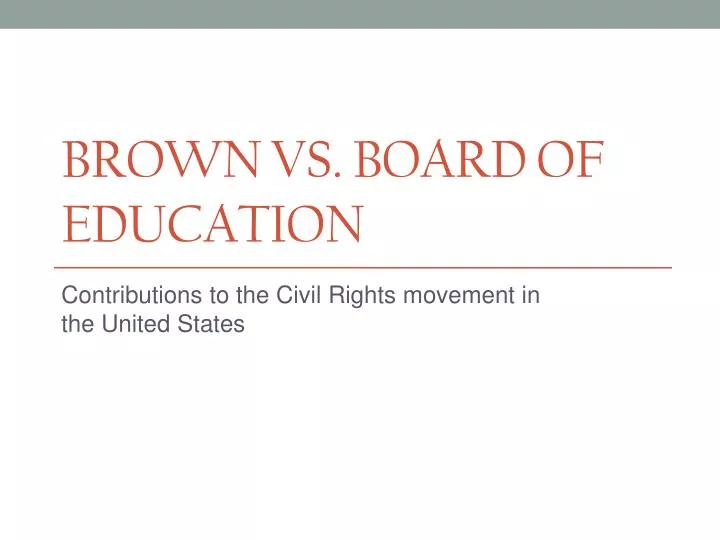

The school buildings were in poor condition, which caused low attendance rates in Topeka. The schools were racially segregated, which led to a lower quality of education for some students in Topeka. The teachers were not credentialed, which led to disparities within the The curriculum was outdated and biased, which led to a poor quality of education in Topeka.

The Emancipation Proclamation separate but equal What is the plaintiffs' main concern about the state of public schools in Brown v. Which policy do the plaintiffs disagree with in Brown v. The Brown case addresses whether public institutions can legally be divided by race. The Brown case addresses whether race-specific entrances are appropriate in schools. The Brown case addresses whether districts should be penalized for segregating schools. The Brown case addresses whether officers can legally acknowledge racial differences. requiring the officer of the passenger train to assign each passenger to the coach or compartment assigned for the race to which he or she belong and imposing fines or imprisonment upon passengers insisting on going into a coach or compartment other than the one set aide for the race to which he or she belongs.How does the excerpt relate to the premises of Brown v. Read the excerpt from the Supreme Court's ruling in Plessy v. The Brown case addresses whether facilities separated by race are permissible by law. The Brown case addresses whether penalties and punishments can legally vary by race. The Brown case addresses whether the laws of Southern states are racially biased.

Board of Education? The Brown case addresses whether localities have the authority to label individuals by race. But, notwithstanding this, petitioner was required by the conductor, under penalty of ejection from said train and imprisonment, to vacate said coach and occupy another seat in a coach assigned by said company for persons not of the white race.How does this relate to the premises of Brown v. and thereupon entered a passenger train, and took possession of a vacant seat in a coach where passengers of the white race were accommodated that such railroad company was incorporated by the laws of Louisiana as a common carrier, and was not authorized to distinguish between citizens according to their race. on June 7, 1892, he engaged and paid for a first class passage on the East Louisiana Railway. Ferguson.That petitioner was a citizen of the United States and a resident of the State of Louisiana, of mixed descent.


 0 kommentar(er)
0 kommentar(er)
